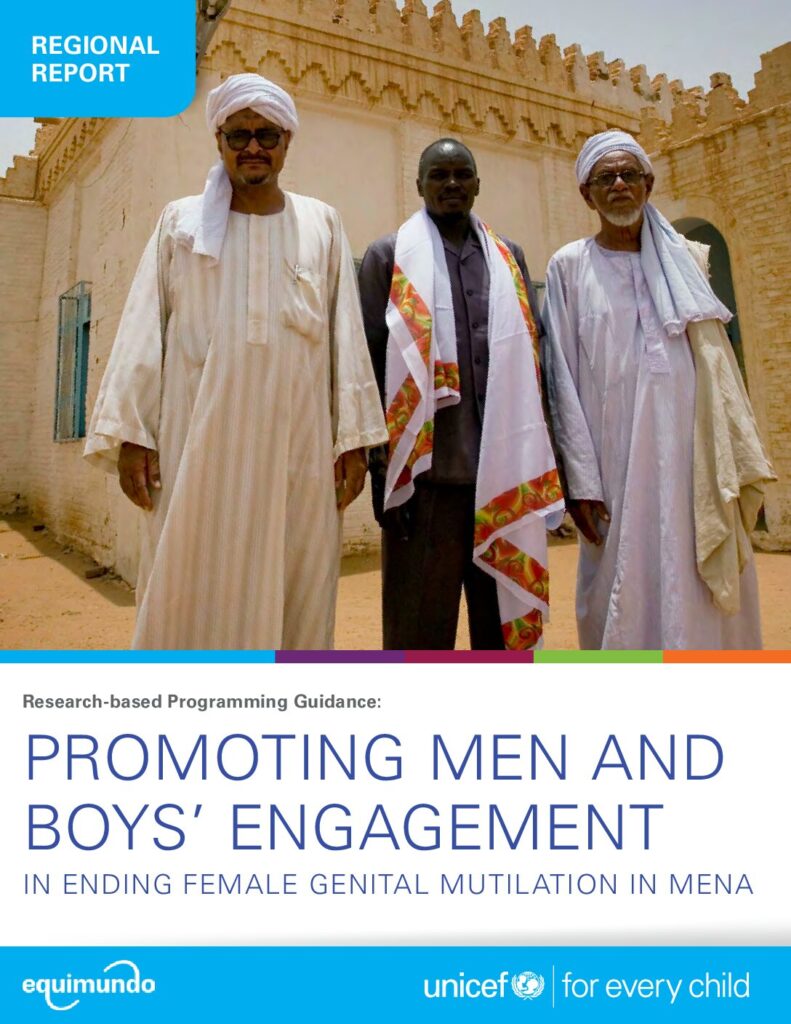Female genital mutilation (FGM) is a violation of human rights. Every girl and woman has the right to be protected from this harmful practice, a manifestation of entrenched gender inequality with devastating consequences. Community-level interventions that focus on elimination of FGM have importantly focused on discussions with girls, mothers, grandmothers and community members on the negative impact of FGM. However, ending patriarchy and challenging restrictive gender norms is not the sole responsibility of girls and women, and the need to work with men and boys to address harmful masculinities and discriminatory gender roles that sustain the practice of FGM is increasingly being recognized. These interventions must focus on urging men and boys to be change agents for gender equality.
In this context, the UNICEF Middle East and North Africa Regional Office (MENARO) commissioned a qualitative research study in four countries: Djibouti, Egypt, Sudan and Yemen. The focus of the study was on boys and men and household decision-making on FGM, sexuality and FGM, and what could be done to engage men more fully in FGM prevention efforts. This regional report summarizes the four country studies and synthesizes country-specific guidance to make programmatic recommendations for the region on how to engage men and boys as partners for change in ending FGM.
This report was developed by United Nations Children’s Fund (UNICEF) Middle East and North Africa Office Regional Office (MENARO) in collaboration with Equimundo: Center for Masculinities & Social Justice.
Resources
Arabic
Promoting Men and Boys’ Engagement in Ending Female Genital Mutilation in MENA
PDF PreviewEnglish
Promoting Men and Boys’ Engagement in Ending Female Genital Mutilation in MENA
PDF PreviewFrench
Promoting Men and Boys’ Engagement in Ending Female Genital Mutilation in MENA
PDF Preview